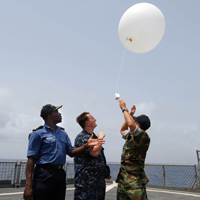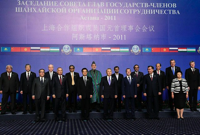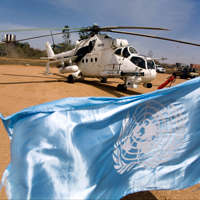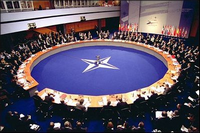
In his greeting sent to the 16th World Meteorological Congress, which wrapped up in Geneva on June 3, U.N. Secretary General Ban Ki-moon welcomed proposals on the congress’ agenda that he said (.pdf) would “assist the poorest and most vulnerable countries [to] adapt to inevitable impacts [of climate change].” Ban urged members to “continue [their] work to improve predictions and early warning on impending weather and climate hazards. This issue will only grow in importance.” Indeed, increases in climate variability have negatively affected the economic development and welfare of the least developed nations over the past several decades. For much […]







